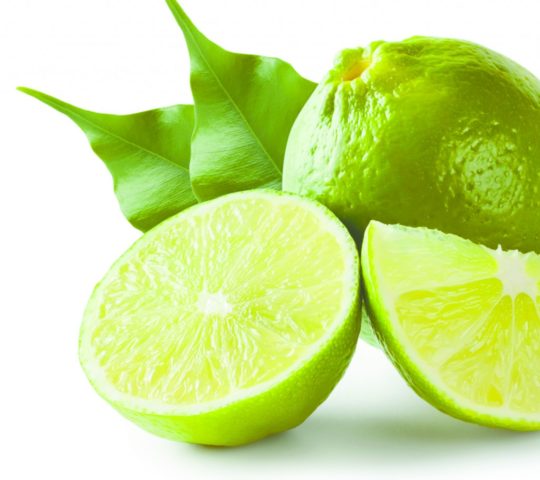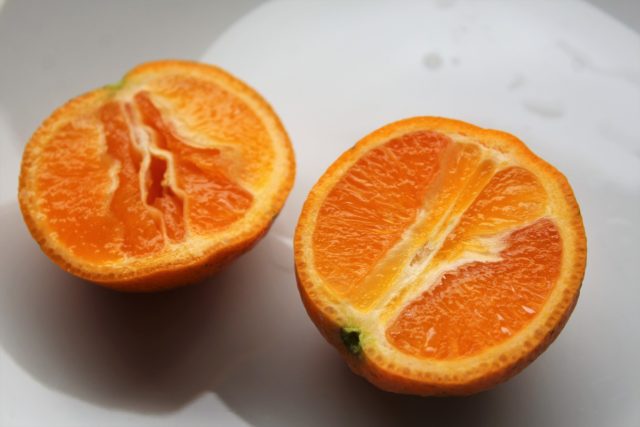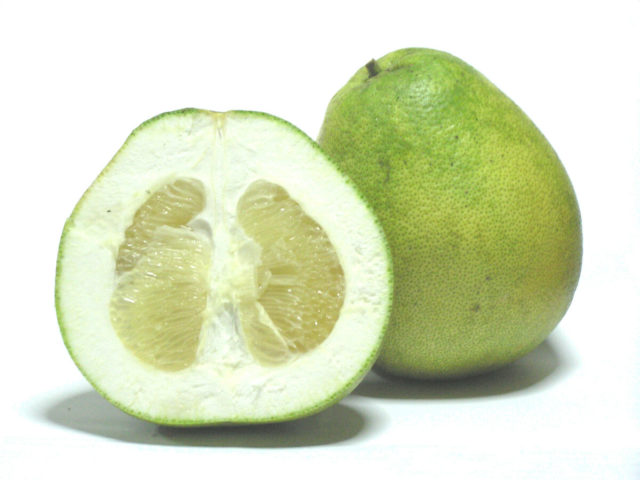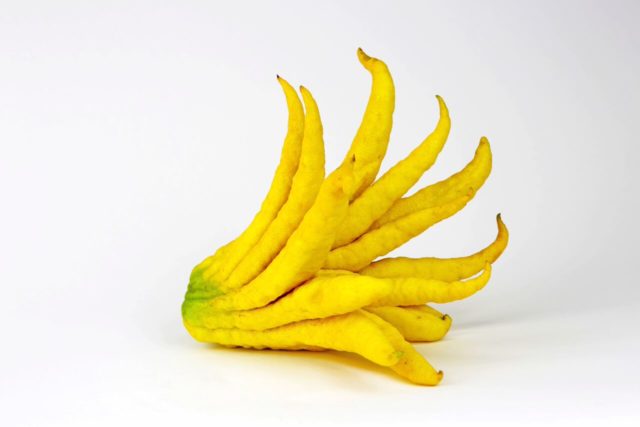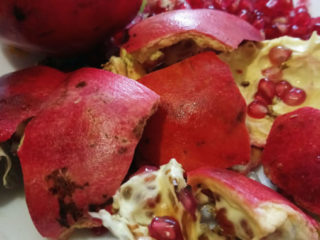Content
Grocery stores sell specific types of citrus fruits: lemons, oranges, tangerines, grapefruits. Some buyers know that citrus hybrids can also be found on these shelves, which differ from their counterparts in unusual characteristics. Some argue that among them you can find an orange crossed with a pomegranate.
Are there oranges crossed with pomegranate
Citruses can only be crossed with members of a related species. Other fruits cannot create a full hybrid with them. Therefore, despite all the assurances of the sellers, there are no oranges mixed with pomegranates. This is a common marketing ploy that encourages a customer to buy a product for further study.
What is passed off as a hybrid of orange with pomegranate
Red orange is a citrus with a bloody pulp. It is a hybrid obtained by crossing a pomelo and a mandarin.
The first representative of the species was grown in the lands of Sicily. Locals appreciated its properties and began trading citrus fruits and seeds in southern Spain, the USA, China and Morocco.
The appearance of this fruit contributed to the legend of the existence of a hybrid orange with pomegranate. The fruit has a bright orange peel, inside of which is a bloody pulp with a strawberry-grape flavor. Ripe fruits have a light hint of raspberries.
Red orange is a dietary food. 100 g of its pulp contains 36 kcal. But due to the high fiber content, the fruits quickly saturate the human body, dulling the feeling of hunger. In addition, they have a beneficial effect on bowel function and maintain water balance.
The pulp of red citrus is rich in vitamins and minerals. Therefore, they love to use it in cooking and cosmetology. Experienced housewives use orange peel to infuse liqueurs and make seasonings for meat and fish dishes.
What other citrus hybrids are there?
In the list of citrus hybrids, there are 60 new fruit species. Many representatives are obtained by crossing common citruses with pomelo, lime and lemon. The most demanded ones:
- Tangelo - tangerine crossed with grapefruit, or pomelo. Its size does not exceed the fist of an adult man, and the sweet taste has retained all the notes of tangerine. Another name for this fruit is "honey bells": unusual growths at the base of such tangerines make tangelos look like them;
- Mineola - one of the varieties of tangelo. The crossed fruit has a flattened shape and a thin orange skin with a red tint. The pulp of citrus is sweet, with unobtrusive sour notes;
- Clementine Is a crossed hybrid of a mandarin with an orange, which has a glossy orange peel and a sweet, pitted flesh inside. Clementine rightfully occupies a leading place in the list of demanded citruses;
- Coals - crossed tangerine with grapefruit. It differs from its relatives in that it was the result of natural work, and not human manipulation. The orange peel of citrus has a green hue and a characteristic tuberosity. A little later, it was combined with an orange, and new offspring were obtained, in which there were a minimum of seeds. The taste of the younger generation of hybrids is slightly different from its predecessors. Orange notes and a slight bitterness appeared in it;
- Rangpur - a hybrid of lemon and tangerine. The crossed fruit retained its orange peel and flesh, but acquired a sour lemon flavor;
- Calamondin Is a crossed hybrid of mandarin and kumquat. The pulp and peel of the resulting fruit can be eaten;
- Oroblanco - a hybrid of a white grapefruit crossed with a pomelo. The peel of the fruit is yellow with a pale shade, and inside there is a juicy pulp, sweet in taste. When ripe, oroblanco can turn golden or green;Attention! The white membrane of oroblanco remains bitter, so nutritionists do not recommend eating it.
- Etrog - one of the types of citron. This citrus has saved many people from seasickness, snakebites, E.coli and respiratory diseases;
- Buddha's hand - no less popular type of citron. Its appearance resembles fused human fingers. Most of the fruit consists of one zest, so they are used as flavoring agents.
Conclusion
An orange crossed with a pomegranate is nothing more than a gimmick of the rich imagination of marketers looking to sell more. The selection of citrus crops can only occur with representatives of related species, to which the pomegranate does not belong.
Citrus hybrids are not uncommon. The combination of different fruits makes it possible to obtain an unusual appearance and a new taste of the young generation of fruits. But this process can only be carried out under special conditions under the supervision of specialists. Even if a hybrid plant grows in a home environment, the chances are high that it is sterile and will not bear fruit.




